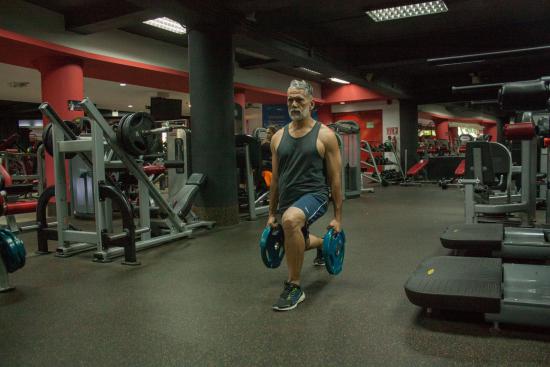
Just like a car, if we are exercising and expect our body to move and perform, we need to make sure to provide it with fuel. However, many of us have questions about what and when to eat and drink before, during and after exercise. Find a few helpful tips below as you think about how to fuel your body and keep the engine running. If you find that you have specific questions regarding nutrition and exercise, you may want to consider seeing a registered dietician or sports nutritionist.
- Don’t start with an empty tank: It’s important to eat something before you exercise to give your body the energy it relies on for your exercise session. The American College of Sports Medicine (ACSM) suggests that you should eat a meal about 3 to 4 hours before exercise. Build your plate with complex carbohydrates such as rice or oatmeal and lean protein like chicken or low-fat dairy. You may want to avoid very fibrous foods such as broccoli and higher fat foods which can be harder for the body to break down.
- Snack for success: If you are short on time on exercise in the morning, try to at least have a snack about an hour before your session. The closer to exercise, the higher the glycemic index of foods you may want to choose. This will be absorbed easier and give your body some instant energy. Some easy ideas might include a banana with peanut butter or cottage cheese topped with pineapple. If you aren’t used to eating prior to exercise, you may want to experiment with what you choose and the timing of when you eat to avoid gastrointestinal upset.
- Don’t forget the fluids: Whether you sweat a little or a lot during exercise, you are losing fluid. Moderate intensity exercisers will lose approximately one quart of fluid per hour of exercise. To combat fluid loss or dehydration try to drink about 7 to 10 ounces before exercise as well as every 10 to 20 minutes during your session. If it's hot and humid, you are sweating a lot, or you are exercising greater than 60 minutes, it may be beneficial to have a sports drink containing electrolytes.
- Power up post exercise: After exercise, it is important to replace what our body loses during the exercise session, such as carbohydrates and electrolytes, as well as protein that will aid in muscle building and repair. Aim for a post exercise meal or snack that is about 50% of the amount of calories burned during exercise. It’s also important to continue to replace your fluids with at least 16 to 20 ounces of water.
Did you know? If you are enrolled in the OSU Health Plan, you are eligible to meet with a dietician three or more times a plan year. For more information regarding your health plan benefits visit https://osuhealthplan.com/.
